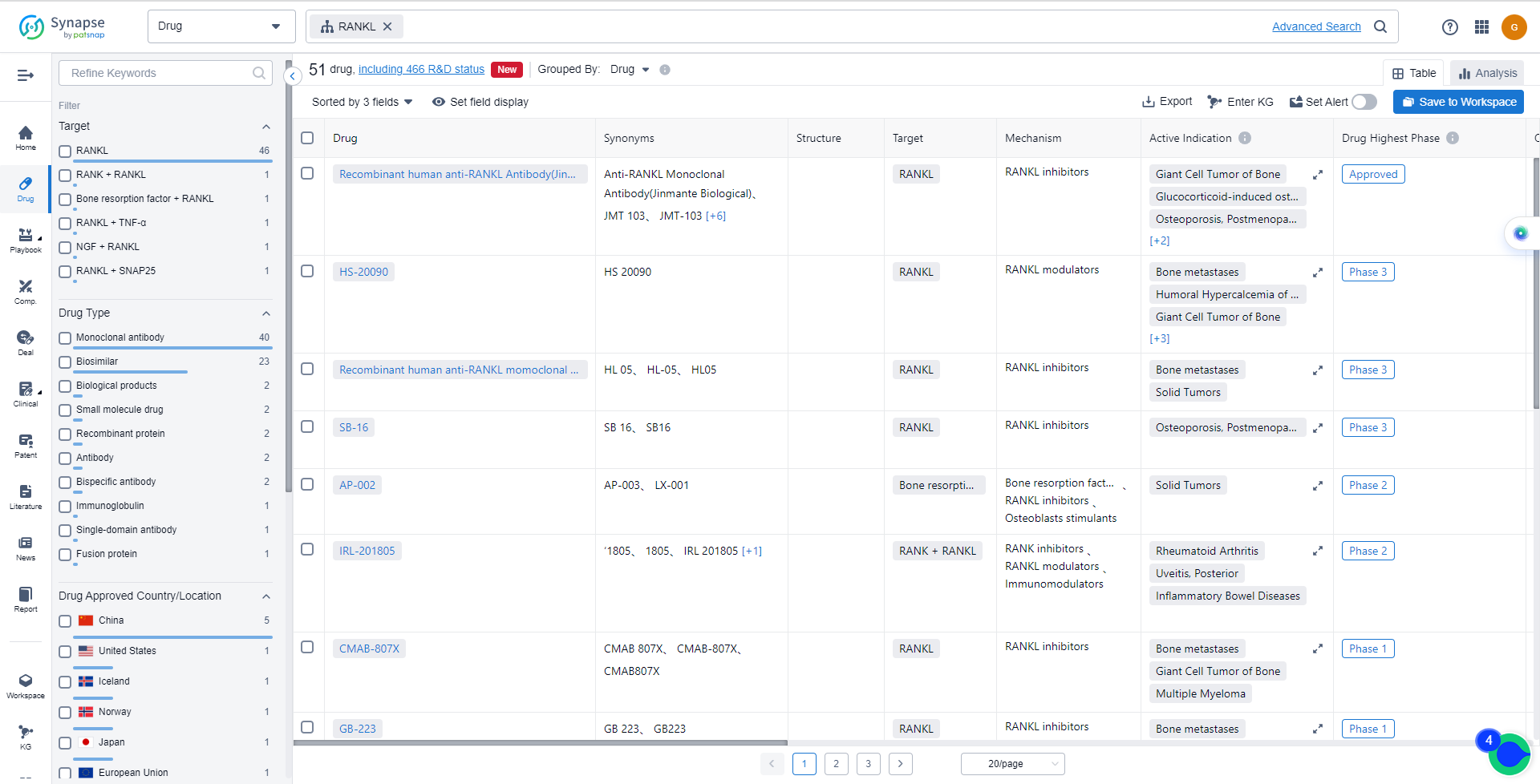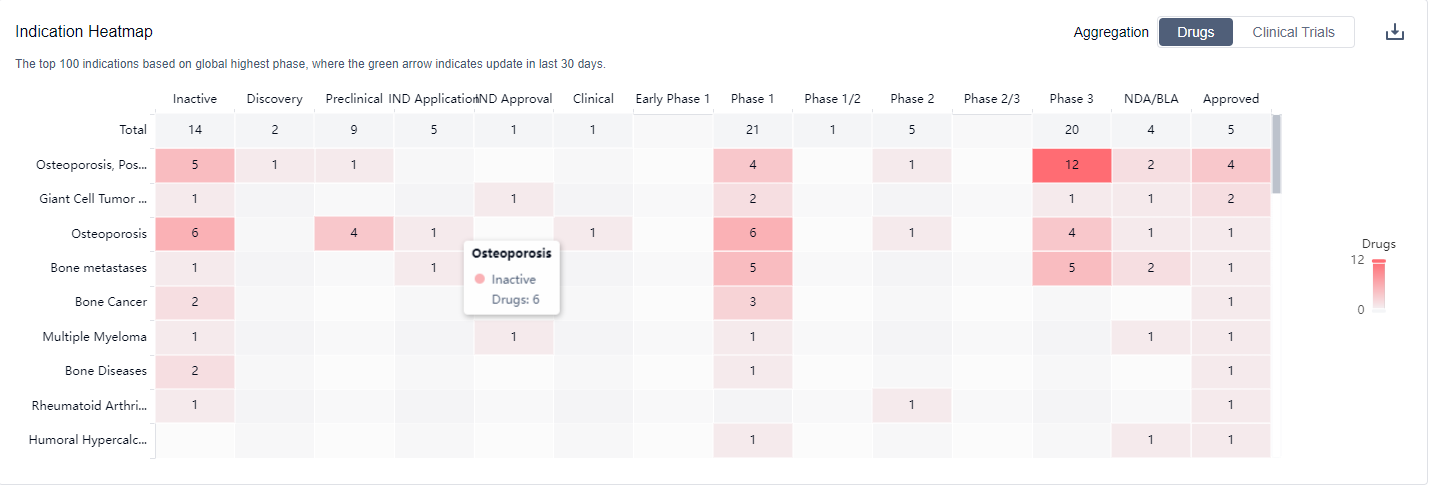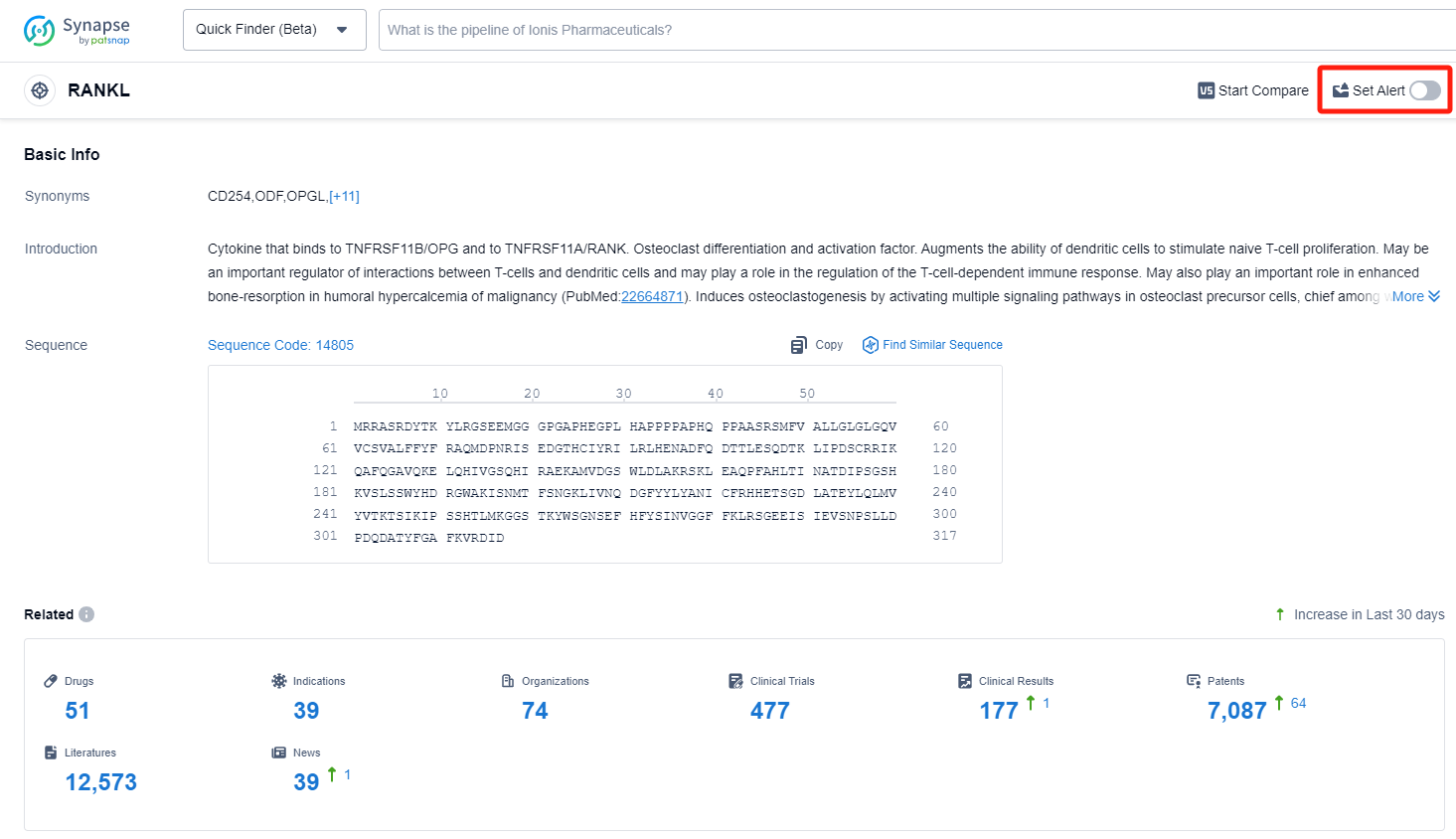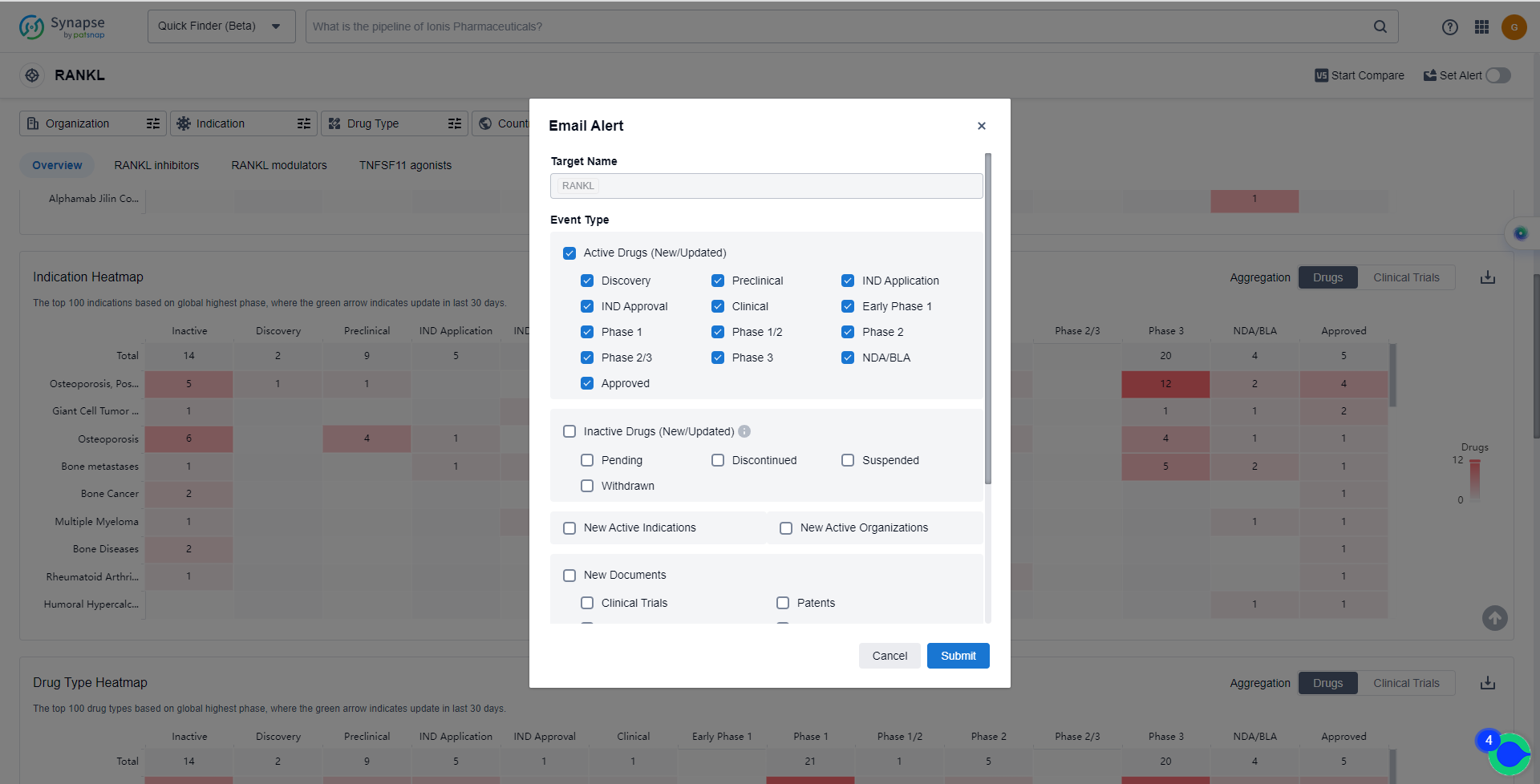What are RANKL inhibitors and how do you quickly get the latest development progress?
RANKL, or Receptor Activator of Nuclear Factor Kappa-B Ligand, is a crucial protein involved in the regulation of bone metabolism in the human body. It plays a significant role in the differentiation and activation of osteoclasts, which are responsible for bone resorption. RANKL binds to its receptor, RANK, on the surface of osteoclast precursors, leading to their maturation and subsequent bone breakdown. This process is essential for maintaining bone homeostasis, remodeling, and repair. Dysregulation of RANKL signaling can result in bone-related disorders such as osteoporosis, rheumatoid arthritis, and bone metastasis in cancer. Targeting RANKL has become a therapeutic strategy to modulate bone metabolism and treat these conditions.
The analysis of target RANKL from various perspectives provides valuable insights into the current competitive landscape and future development. Amgen, Inc., Luye Pharma Group Ltd., and Mabwell (Shanghai) Bioscience Co., Ltd. are among the companies showing significant growth under the target. Approved indications for RANKL-targeting drugs include Osteoporosis, Postmenopausal, Giant Cell Tumor of Bone, Bone metastases, Bone Cancer, Multiple Myeloma, and others. Monoclonal antibodies and biosimilars are the most rapidly progressing drug types, indicating intense competition. China is at the forefront of RANKL-targeting drug development, followed by the United States and European Union. The analysis suggests a promising future for the development of RANKL-targeting drugs, with potential applications in various bone-related diseases and cancers.
How do they work?
From a biomedical perspective, RANKL inhibitors are a type of medication that target and inhibit the receptor activator of nuclear factor kappa-B ligand (RANKL). RANKL is a protein that plays a crucial role in the regulation of bone remodeling and immune system function. By inhibiting RANKL, these inhibitors can help prevent bone loss and reduce the risk of fractures in conditions such as osteoporosis. Additionally, RANKL inhibitors have shown efficacy in the treatment of certain cancers that involve bone metastasis, as they can help inhibit the growth of cancer cells in bone tissue. These inhibitors are typically used in combination with other therapies to provide comprehensive treatment for bone-related disorders.
List of RANKL Inhibitors
The currently marketed RANKL inhibitors include:
- Recombinant human anti-RANKL Antibody(Jinmante Biological)
- HS-20090
- Recombinant human anti-RANKL momoclonal antibody(Hualan Genetic Engineering Co Ltd)
- SB-16
- AP-002
- IRL-201805
- CMAB-807X
- GB-223
- LZM-004(Livzon Group Livzon Pharmaceutical Factory)
- ADR-3
For more information, please click on the image below.
What are RANKL inhibitors used for?
RANKL inhibitors can help prevent bone loss and reduce the risk of fractures in conditions such as osteoporosis. For more information, please click on the image below to log in and search.
How to obtain the latest development progress of RANKL inhibitors?
In the Synapse database, you can keep abreast of the latest research and development advances of RANKL inhibitors anywhere and anytime, daily or weekly, through the "Set Alert" function. Click on the image below to embark on a brand new journey of drug discovery!








